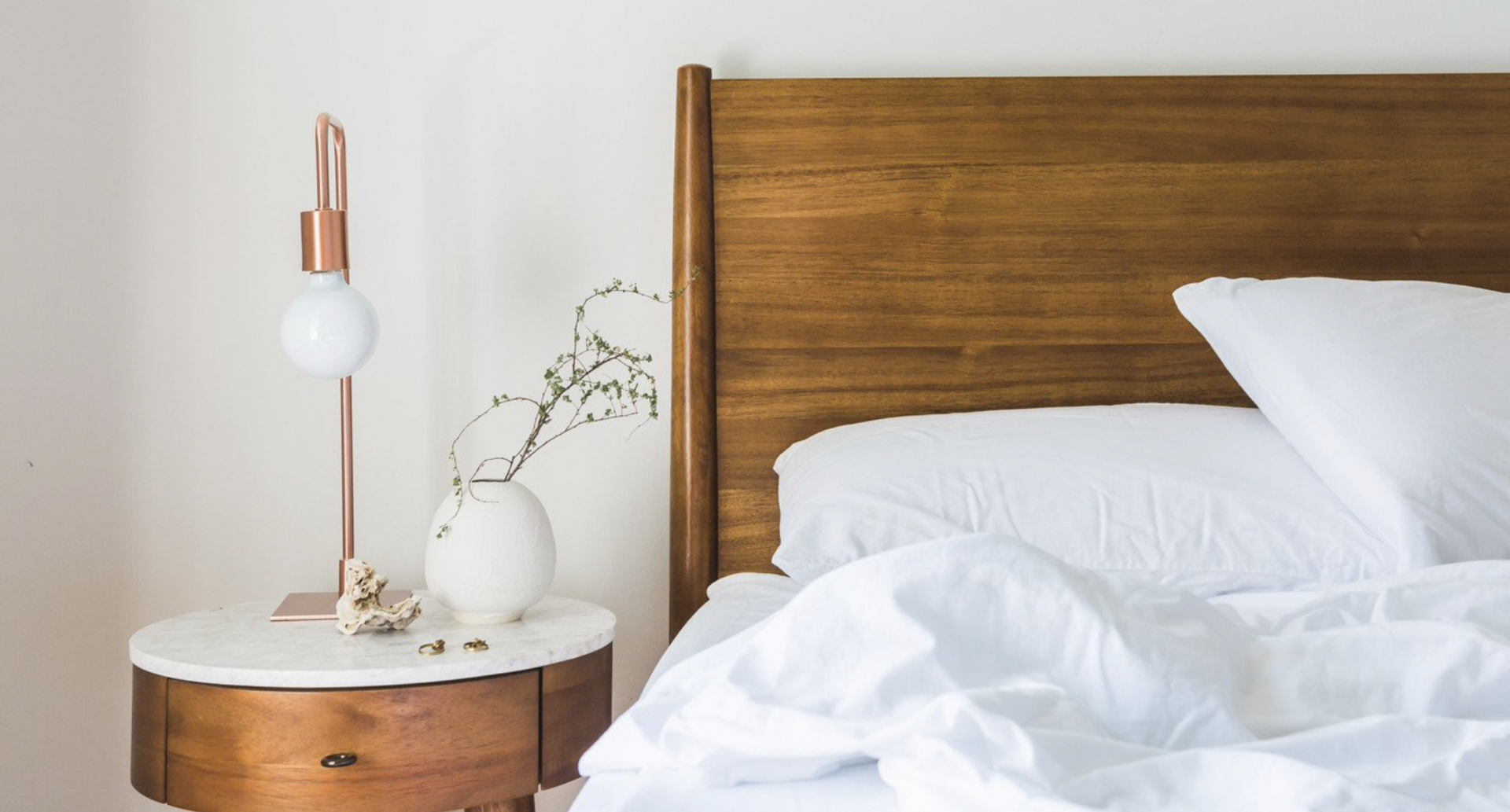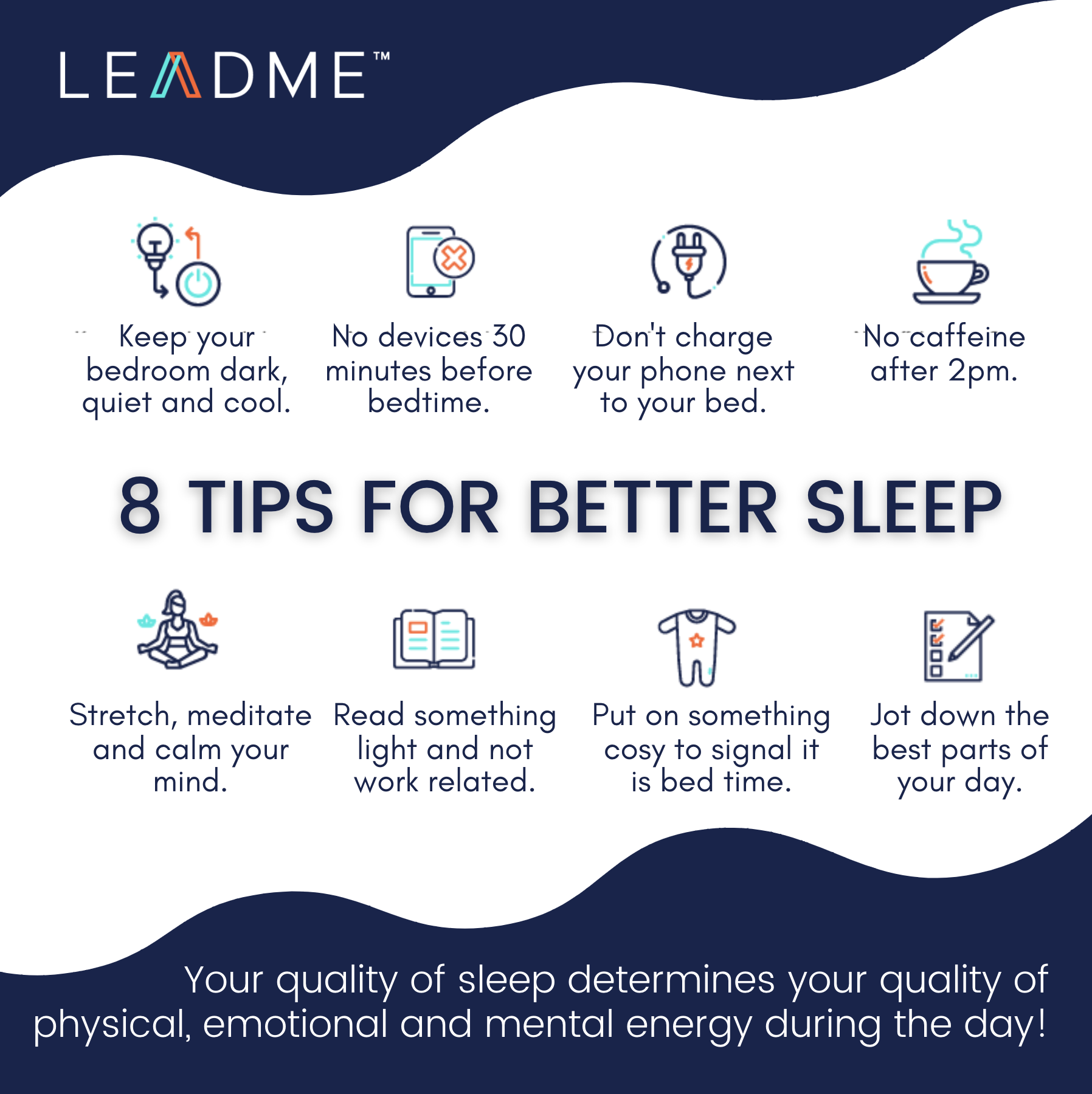If there is one habit to work on before 2022, this is it.

Most of us know we should prioritise getting more sleep and going to bed earlier. When we sleep, our brains naturally recover from the day, our energy levels are restored, and we process complex emotions and thoughts. Yet when we’re running on fumes (which most of us are at the end of the year), we’re not capable of thinking and acting logically –– including knowing how to prioritise sleep. Some work cultures even use sleep deprivation as a badge of honour, with employees burning the candle at both ends to meet a deadline and edging closer and closer to burnout in order to meet shifting organisational goals. This is unhealthy, counterproductive and not sustainable for you, your team or your company.
It’s not only about being in your bed for eight hours a night, it is also about the quality of your sleep. Without a good night’s sleep, our decision-making abilities and emotional regulation become severely impaired. So, if you have woken up in a foul mood after a terrible night of tossing and turning, don’t take your emotional responses during the day too seriously and be kind to yourself and others. When we don’t sleep well, we also become unable to commit new experiences to memory. That means that anything you’ve experienced during the day, like new ways of thinking or behaving, can’t be stored correctly in the brain. Reaching our ideal number of non-REM and REM sleep cycles is critical for our brains and bodies to function effectively, as sleep scientist Matt Walker discusses in a series of TED videos on the science of sleep.
This holiday break, we strongly recommend prioritising sleep and getting some solid rest to reset you for 2022. If you don’t already have a morning and night time routine, outline them on paper and start practicing. Here is Dr. Andrew Huberman’s toolkit for sleep, where he places a large focus on waking up at the same time every morning and falling asleep when you first start to feel drowsy. He also suggests going outside within 30-60 minutes of waking and then again in the late afternoon, before sunset, to help naturally trigger your circadian rhythms.
Huberman emphasises that, “sleep is THE foundation of our mental and physical health and performance in all endeavors. Yet no one is perfect about sleep. The occasional night out or missing sunlight viewing here and there is not a big deal, so don’t obsess about that. However, if any of us drift from these and the other behaviors for too long, we start to suffer. So whatever your life and goals and schedule, master your sleep. You’ll be so happy you did!” There is no one-size-fits-all approach to helping someone to fall asleep. Find what supports you in switching off and getting eight hours of zzzzs, and then stick to it as much as possible. Here are eight tips from us to get you started! Our LeadMe team wishes you a restful holiday season ahead - now switch off and get to sleep! 😴


